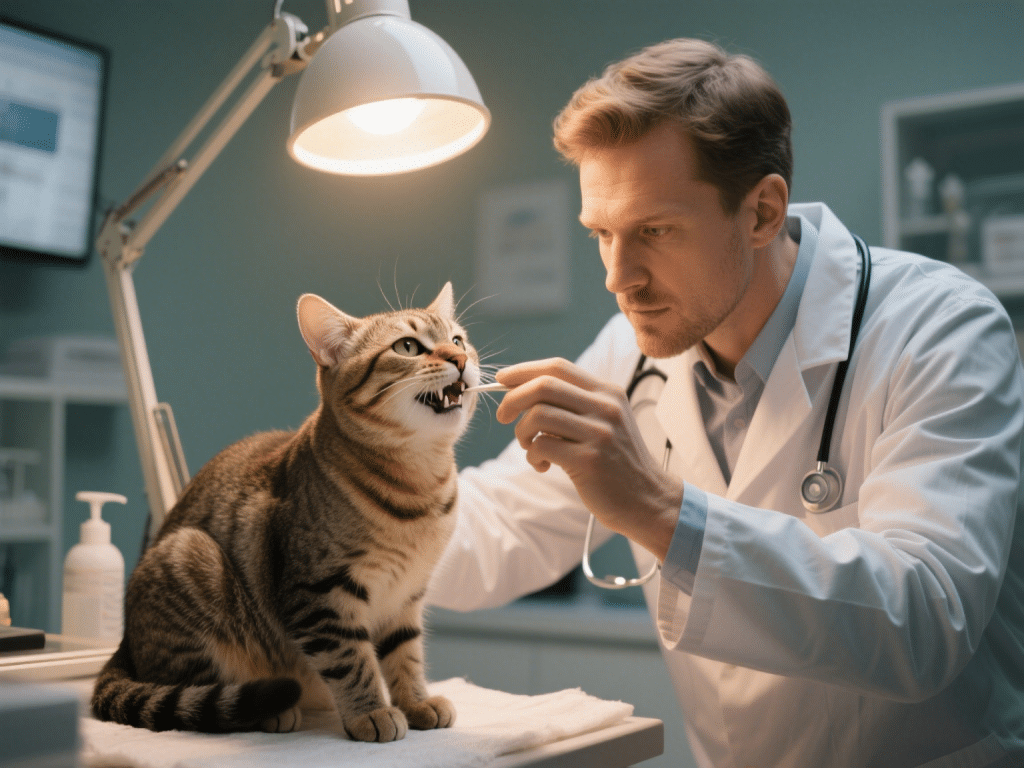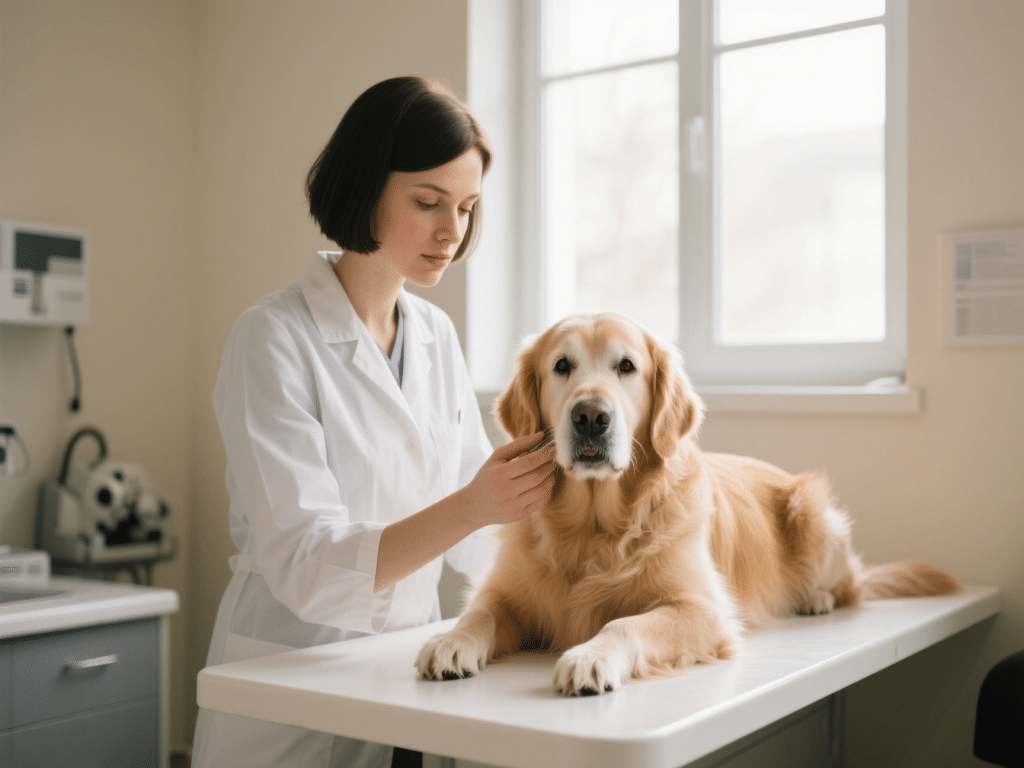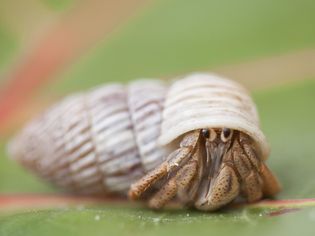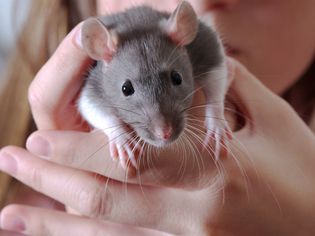
Natural Deworming Solutions for Senior Dogs
When dogs age, their immune systems slow down, making them more susceptible to internal pa...
Tumors are relatively common in pet rats, and they can contribute to rats' relatively short lifespans. These growths, which can be malignant or benign, can occur in various places on a rat's body. Some cause pain or impede rats' daily activities. Because these animals are beloved by their owners for their friendliness and intelligence, early detection and treatment of tumors are critical. Treatment, primarily surgery, may help keep a rat more comfortable or extend its life.
A tumor is a mass or growth of abnormal tissue on a rat's outer body or internal organs. Tumors can range from less harmful benign cysts or lipomas (fatty tumors) to life-threatening cancerous tumors.
Tumors can develop on the skin of a rat where they are visible or internally where they may go unnoticed for some time. Some common types of tumors in rats include:
Depending on the location, your rat's movement may be impaired which can lead to lethargy, poor appetite, and weight gain from a growing tumor.
Some tumors may cause an increased appetite in your pet rat. However, a rat that eats a lot of food but gains little to no weight may be experiencing a nutritional offset where the intake of nutrients is directed toward the growth of the tumor.
Brain tumors usually cause neurological symptoms as well as bulging eyes and a misshapen head due to tumor expansion. Rats with brain tumors may be ataxic and have problems getting around or appear wobbly.
These are fast-growing and hormone-dependent tumors that respond to both estrogen and prolactin stimulation. They are most often seen in female rats that are not spayed, and malignancy is likely.
Also known as fatty tumors, lipomas are pockets of fat tissue that can surface on any part of a rat's body. They are rarely cancerous but may grow large enough to require removal.
Male rats are the most prone to developing cysts. Cysts are not considered tumors (unless it is a cystadenoma), but they look and feel like tumors. They are often found on a male rat's back near its sebaceous glands. Cysts can pop up from a simple skin infection or ingrown hair. They are usually quite firm and do not grow as large as a lipoma or mammary tumor.
Both benign and malignant brain tumors can be caused either by the presence of cancer or by an abnormality in the pituitary gland.
Physiological/genetic and environmental factors (such as poor breeding or exposure to carcinogenic toxins) can contribute to the development of tumors, but no one knows exactly what initiates the abnormal growth of tissue in every case.
Different types of tumors may be more obvious than others. Some tumors grow quickly and are easy to spot, while others are hidden internally and may go unnoticed until your rat starts having trouble getting around or seem painful when picked up.
After discovering a tumor, a veterinarian will perform a physical exam, x-rays, and/or ultrasounds to determine the shape and invasiveness of the tumor. A biopsy may also be required to find out if the tumor is cancerous.
Some growths may be small and manageable without surgery, but most tumors in rats get so large that they need to be removed due to the small size of the animal.
Mammary tumors and large lipomas are often surgically removed, especially if they are suspected to be cancerous or causing ambulation issues in your rat. Some growths are difficult to completely remove and regrowth is common.
Cysts are usually lanced, allowing fluid to ooze out. Cysts need to be watched for infection and can regrow, leading to later surgical removal.
Brain and certain types of cancerous tumors are inoperable in rats. Yet, some types of cancer can be treated with drugs like Tamoxifen (for estrogen-sensitive cancers), and supplements like turmeric and shark cartilage are reported to stunt a tumor's growth.
Rats with severe health issues, however, should be euthanized once their quality of life is compromised.
The prognosis depends on the type and size of the tumor in a rat. Operable tumors may be removed, offering increased comfort and mobility, but many tend to regrow. Invasive cancerous tumors are often inoperable and may quickly impact a rat's quality of life.
While there is no guaranteed prevention of tumors, feeding a rat a nutritious, low-fat diet may help prevent cancerous tumors in some rats. Several studies also show a decrease in mammary tumor formation in rats fed a diet high in miso, a soybean product. In addition, spaying or neutering your pet rat may help reduce the likelihood of it developing cancerous breast or reproductive organ tumors.

When dogs age, their immune systems slow down, making them more susceptible to internal pa...

Nothing dampens a dog’s spirit more than the itching, head‐shaking, and discomfort of ...

I’m a long-time pet blogger and indoor gardening enthusiast. With over a decade of testi...

Cats are living longer than ever thanks to improved veterinary care and nutrition — but ...

IntroductionMany dog owners notice their pets trailing them from room to room. While endea...

IntroductionCatnip (Nepeta cataria) is a member of the mint family known for its euphoric ...

The Science of Pet Aging: How to Care for Senior PetsIntroduction: The Graying of Our Pets...

Before getting a pet hermit crab, you might ask yourself, “What do hermit crabs eat?”...

Pet rat teeth can be problematic. Not all exotic pets have problems with their teeth, but...
Comments on "Tumors in Rats" :